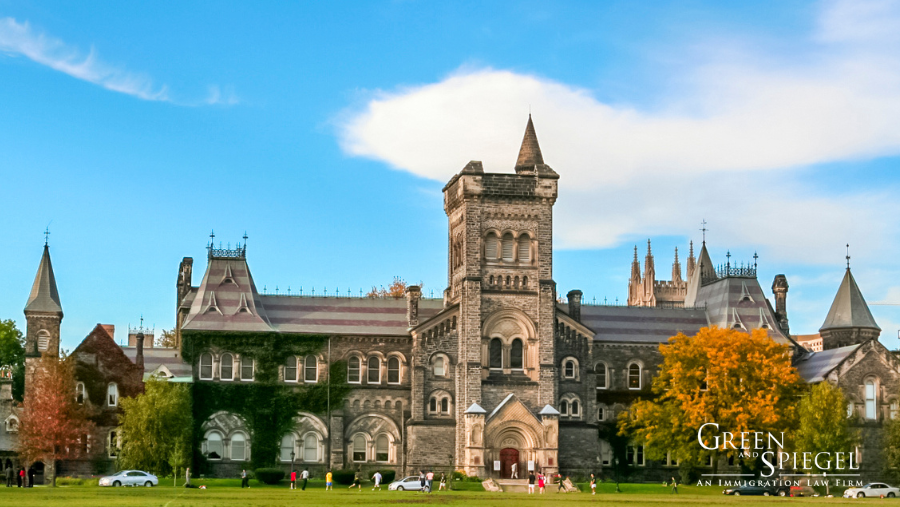More and more international students are choosing to study in Canada. The latest data from the Canadian Bureau for International Education demonstrates that there were 494,525 international students in Canada in 2017. This represents a 34% increase between 2014 and 2017.[1] This growth has contributed to Canada’s economy, diverse population, and has also supported job creation.
One of Canada’s many attractions for international students is Immigration Refugee and Citizenship Canada’s (IRCC) Post Graduate Work Permit Program (PGWP). The program allows certain foreign nationals whom have graduated from a Canadian post-secondary school to obtain an open work permit. International students can thereby apply their education to the Canadian labour market, opening doors to different pathways to Canadian permanent residence.
However, the short timelines and previous restrictions associated with the PGWP program made the benefits of the program illusory for certain applicants. After having their PGWP applications refused, many international graduates were left without status and had to return home after having resided in Canada for years with the hopes and expectations of pursuing a better education and gaining meaningful Canadian work experience.
The following policy changes that came into effect last month on February 14, 2019 have helped to alleviate the previous issues with the program:
ADDITIONAL TIME TO SUBMIT
The deadline to apply for a post-graduation work permit has been extended from 90 days to 6 months (180 days) from the first of the date that the student’s final marks are issued or the date formal written notification of program completion is received. Increasing the amount of time that students have to apply for the work permit helps to ease the effects of many students’ confusion surrounding when the restrictive eligibility period starts and ends.
STUDY PERMIT NO LONGER REQUIRED
Applicants are no longer required to hold a valid study permit when applying for a PGWP. This change will positively affect students whose study permits are set to expire before they are eligible to apply for a PGWP. Previously, such students had to apply to maintain their student status at the institution even though they had graduated. If they failed to extend their status as a student or if their application for an extension was refused, they were deemed ineligible under the PGWP.
LEAVE FROM STUDIES
As well, IRCC has added to their instructions an exception for those students who took a period of leave during their studies. Students who took a break from their studies may now be able to qualify under the PGWP program if the period of leave did not exceed 150 days. Graduates who were previous excluded from the program for taking leave due to financial, medical, or personal problems may now be able to qualify.
The old guidelines will continue to apply to applications received prior to February 14, 2019. However, foreign nationals who had their applications rejected under the old guidelines can resubmit an application under the new guidelines if they are still eligible.
The new guidelines will apply to any applications submitted on or after February 14, 2019.
[1] Canadian Bureau for International Education. International Students in Canada. Aug. 2018, cbie.ca/wp-content/uploads/2018/09/International-Students-in-Canada-ENG.pdf.




